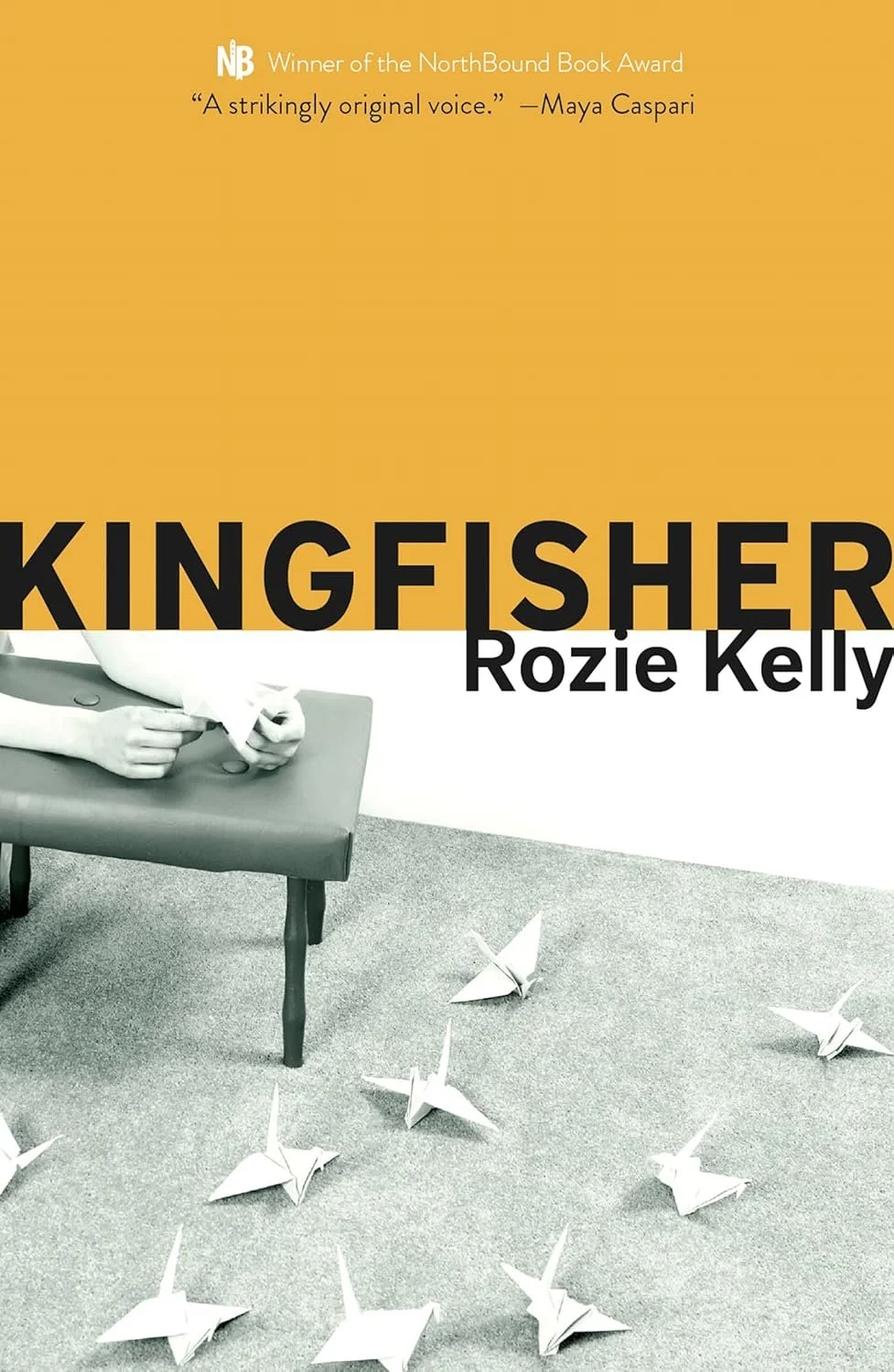Kingfisher, Rozie Kelly
Rozie Kelly has already been compared to Sally Rooney and Deborah Levy, most likely for her immediate and elegant grasp on the elusive complexities of intimate relationships. Kingfisher, her debut that won the 2024 Northbound book award, follows a creative writing professor thrown into disarray when he falls for a female colleague, named ‘the poet’.
With an admirable job and a loving partner, the professor’s life was pleasantly stable before he met the poet. She, on the other hand, is the inscrutable opposite of what he believes he wants and needs. By deliberately leaving the poet unnamed, Kelly allows us to experience her purely by what she represents to the professor. His feelings for her are crude, tender, and obsessive. Scent is granted the most attention, reflecting how desire very much guides this romance.
Their coupling is complicated from the start. The professors perfect-on-paper ex is never completely gone, his homophobic mother is a burdensome shadow, and he flounders between his past life and the present moment the poet now occupies.
There is a cruelty to Kingfisher, offset by softer prose saved for the professor’s infatuation. Delicate avian language and the elusive anonymity of unnamed characters washes a watercolour of lightness, and quiet sadness over the darker, harsher sides of desire. Illness is a fragile, brutal context in which to be in love and makes a foggy mess of the giving and taking that is inevitable in a relationship, but especially one that hinges on uneven power dynamics.
Kelly may be writing in the same lane as the likes of Rooney and Levy, but she is a confident voice in her own right, and handles grief, power, and desire with deftness. The attractive prose typical of literary fiction, and indeed seen in this novel, often creates more vibe than substance, but not in the case of Kingfisher, a story that stings with realism.
Editorial Picks



